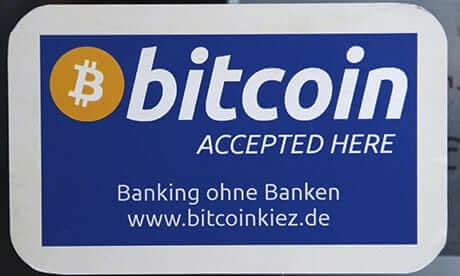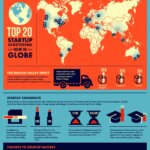This year investment in Bitcoin startups has surged past that of investment in the original internet startups of 1995 like Yahoo and Netscape. Many in the industry are drawing parallels in Bitcoins’ growth to that of the internet whereby bitcoin does for finance what the internet did for information.
In order to investigate Bitcoin’s impact and potential lets first be clear on what it is. Bitcoin is a decentralised, peer to peer, open source digital currency. What this means is that nobody issues or controls it, payments between two parties are direct with no middlemen and the code of which it is based off ensures a limited supply (only 21 million will ever exist) and is open for anyone to see and improve upon. All transactions in the network are maintained in a shared ledger called the ‘blockchain’ where transactions are stored forever and cannot be reversed and this data is open and auditable at the click of a button. Bitcoin is traded 24/7 around the world where It’s value lies in it’s utility as an open currency, the network of users and unique products and services the blockchain can provide. One Bitcoin is currently trading around $400 USD.
The first and most obvious use of Bitcoin is as a means of payment. If your business currently accepts Credit cards, Paypal, Alipay etc these services are tied to a region and commonly a bank account. Paypal does not operate in your country or currency? Can’t use it. US business only accepts US credit cards? You miss out on business from the rest of the world. Not only are integrating these systems costly and time consuming but also restrictive to a businesses global growth. Bitcoin enables business to sell their products anywhere in the world, there are no transaction fees, integrating it into your physical or online business can take minutes, no chargebacks and your customers do not need to exchange their private information over the internet. Many bitcoin merchant processors can exchange the bitcoin for fiat currency instantly to ensure there is no exchange rate volatility ensuring you can pay bills in your local currency yet your customers can pay in bitcoin.
Secondly, the barrier to entry for being able to use bitcoin is very low, you can download an app and now you have all the utility of a bank at your fingertips. According to the Worldbank 2.5 billion people globally do not have a bank account . These people cannot take part in global commerce, qualify for a loan or build savings yet now with bitcoin they have a cheap alternative to do that and a lot more (especially with the proliferation of cheap smartphones around the world although bitcoin can still be used offline too).
As I mentioned earlier, the blockchain is a shared ledger that lists all transactions to ever have taken place, however this has powerful applications beyond just a simple ledger of transactions. Data can be stored in these transactions which enables a new set of unique products and services. Businesses anywhere in the world can publicly list themselves on the blockchain as a means to IPO, massively reducing time and costs compared with listing on a traditional stock exchange and opening the business up to investment from anywhere in the world through bitcoin. The Storj, Maidsafe and Ethereum projects have done this already raising millions. Deeds to a house or contracts to a car can be digitally signed and stored on the blockchain too, irrefutably proving ownership. Infact, you could link your smartphone to the lock on the house door so only the person who is in ownership of that house has access (or can grant access to others)- great for landlords managing rentals. Interestingly, a couple from Florida, USA in September this year enshrined their marriage on the blockchain demonstrating it’s not just contracts that are forever but relationships too.
The applications are many and varied and you can’t help but draw parallels with the internet in its early days where many were questioning the need for people to have a personal computer let alone pay for something with it. As the growth engine this century, Asia stands to gain the most by the adoption of crypto-currency like bitcoin especially in many emerging markets in the region that may lack suitable financial systems. As a new industry is created so to are new jobs and ideas- I founded Bitspark to bring the benefits of bitcoin to the emerging markets of asia where I believe the most potential lies in merchant adoption, remittances and enabling the unbanked to do business with the world. It’s an exciting time to be involved in this industry and I am eager to see what solutions entrepreneurs around the world come up with next.





























